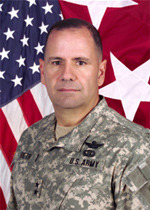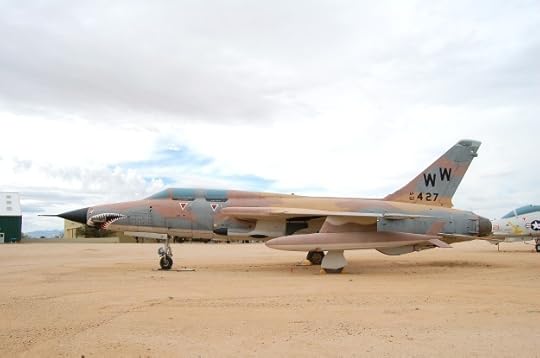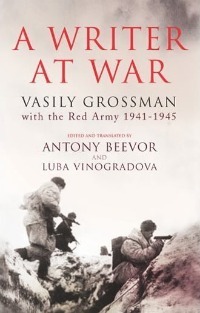Thomas E. Ricks's Blog, page 214
December 5, 2011
Col. Paul Yingling on why he is leaving the Army to become a high school teacher

Col. Paul Yingling, who has written
for this blog, and also critiqued
the performance of our generals in our recent wars, explained
his decision in Sunday's Washington Post:
"Especially in a democracy, we ought to respect most those who foster the
character traits that make self-government attainable -- parents and teachers,
coaches and ministers, poets and protesters. When I hear the Army motto, "This
We'll Defend," it's them I have in mind."
He will be missed.
Sex roundup: Openly straight chief of New Jersey National Guard ousted over such behavior, plus spanking down under

Apparently, he was carrying on with an aide who, like him, is
married to someone else.In an interesting footnote, Maj.
Gen. Glenn Reith had been appointed to his post by the New Jersey governor
who stepped down over a homosexual sex scandal with an aide. No word yet on
whether General Reith will seek the Republican presidential nomination.
Meanwhile, an Australian navy officer is being
court-martialed for allegedly spanking
a female officer nine times last year. The case took a weirder turn when
the female officer testified that an Australian mining tycoon offered her a
million bucks to prostitute herself to him for a year. Human beings are
endlessly surprising.
December 2, 2011
Hazing vs. leadership: Some thoughts on getting my arm broken at West Point

I found this essay, which until now has only been available
on an internal Army website, quite striking. It essentially asks: How could a
place that prides itself on its honor code tolerate sadism?
Just FYI, the author's own title for this piece is "Cool on Honor: Sadism, Cruelty, and
Character Development at West Point."
By Lt. Col. Peter Fromm, U.S. Army (Ret.)
Best Defense department of military ethics
Cool on Honor: Sadism, Cruelty, and
Character Development at West Point
I have had one serious unanswered
injustice done to me in my life, and it occurred when I was 21 years old. I
mean "unanswered" in the sense of reciprocity-there has been no accounting for
this injustice. I have always wanted to write about it, not because of
self-pity but because of something I learned from it that has grown on me over
the years. This personal essay describes it as a snapshot from the Army's
troubled times in the 1970s. The story surfaces one important aspect about
leadership and stewardship in the modern Army: the antithetical relationship
between gratuitous cruelty and honor and the duty to do something about it. In my experience as an Army ethicist,
having been sent to graduate school for that purpose, I have seen this
antithetical relationship as potentially the most important ethical failure the
institution faces. I say this because the institution puts weapons in the hands
of young, inexperienced people and then gives them the power of life and death
over others. If we do not do all that we can to get this part of Army culture
right (the relationship between cruelty and honor), we stand convicted of
hypocrisy of the worst kind.
When the Army educated me to teach
ethics (a sign of health in the organization that it actually does such a
thing), I developed an eye for institutional moral window dressing. That's
mostly what I want to talk about here. In the Odyssey, Homer says that "the blade itself incites to
violence." I want to rephrase that beautiful observation to say that
"power over others incites to cruelty." When one exercises power over
another, if there is a lack of moral sense, of maturity, or of wisdom in the
execution, it inevitably becomes entangled with that most basic of impulses,
sexual dynamics. [[BREAK]]
As Jean Paul Sartre demonstrates in Being and Nothingness, this sexual component to power dynamics
remains a common denominator in human nature, a basic component of our
social-political experience. In the case of power over others, there is a psychological
impulse to see the other as an object, to dehumanize the other, and to attempt
to take action to literally objectify the other through violence or through
institutionalized cruelty. This impulse stems from a need to exert one's
existence at the expense of the other, and in this effort there is a tendency
toward sadistic abuse. This dynamic is what happens when adults abuse children,
as in the case of pedophiles. In power relationships, like rank hierarchies in
the military, sexual impulse arises either overtly or in some sublimated way.
If it arises overtly, it often ends in sexual harassment or assault, such as
what became known at the Air Force Academy in 2005 when several women came
forward to say that had been raped or otherwise assaulted there. Another famous
case occurred at the Naval Academy when women were chained to urinals in the
men's latrines. When this impulse arises in some sublimated way, it often finds
its outlet in violence vented out in some more or less "acceptable" form, such
as hazing. Army leaders have to be knowledgeable of and on guard against this
natural tendency and not minimize it, writing it off as, or justifying it as,
discipline, toughness, or some other thing not daring to name it for what it
is, which is what happens all too often. Such abuses happen primarily at the
lower levels, at the young levels of leadership, though we are all too familiar
with the abuses of more senior and notorious "toxic leaders" of the past.
Rebecca's War Dog of the Week: Yes, Dogs Really Do Get PTSD. So What Do We Do About It?
 See the complete War Dogs slide show here.
See the complete War Dogs slide show here.
By Rebecca Frankel
Best Defense perceiver of the divine in the canine
We've said it here before but we'll say it again: Yes. Military
working dogs deployed to combat zones can become afflicted with Post Traumatic
Stress Disorder (PTSD), just like their human handlers. And some, according to
a new, buzz-worthy NY Times article, "After
Duty, Dogs Suffer Like Soldiers," are even being treated in the
same way as humans -- with Xanax.
Over
the last year or so the military has made a big
push to up its numbers of handler-dog teams on the ground in Iraq and
Afghanistan. Not surprisingly, the more dogs that go to war, the more dogs
there are who are likely to suffer the traumas of combat. According to the
article: "By some estimates, more than 5 percent of the approximately 650
military dogs deployed by American combat forces are developing canine PTSD. Of
those, about half are likely to be retired from service, Dr. Burghardt [chief
of behavioral medicine at Lackland's MWD hospital] said."
While
the article points out early on that "the concept of canine PTSD is only about
18 months old, and still being debated," canine PTSD is nothing new. It's been
around as long as dogs have been fighting alongside soldiers. But what I think
is actually noteworthy here is that the term has as the article says, recently
"gained vogue among military veterinarians." Maybe now canine PTSD will get the
attention and resources it deserves.
As
handlers have told me, sometimes there's just no way to know how a dog will
handle the stress of an actual firefight -- even if they tolerated the noise of
a ammunition on a training facility back on base, doesn't mean they'll handle
it the same once deployed. And some dogs -- remember Gunner? --
don't even make it through the earliest stages of that transition to combat
zone.
There has been headway in rehabilitating canines showing symptoms
of PTSD, even with those dogs who are almost completely debilitated by their
fear of sudden noises, strangers, or the dark. But these methods vary in time
and intensity, availability of resources, and degrees of success. As more dogs
are put into service, the problem is likely to rise and the military will have
to adapt to keep up the number of active, high-performing dogs on the ground.
So
how do we solve a problem like MWD PTSD?
One
Army veterinarian commented on a MWD Facebook forum in response to the NY
Times article, the answer is not to wait and depends first and foremost on
vigilance of the handler who, upon seeing and signs of stress or trauma, must
immediately alert a veterinarian so that the appropriate meds and therapy can
be applied as soon as possible.
"Remember,"
she writes, "It takes a TEAM to combat cPTSD!"
In
other War Dog news: Peg, a stray
adopted by the family of a fallen parachutist, Pte. Conrad Lewis, is finally
out of quarantine and is going
home, for real this time. And Gracie, a dog
rescued from Afghanistan by U.S. soldiers needs a home. She lost a leg and part
of both ears to neglect but makes up for it in spades with her loving
disposition. Any takers?
One more reason to be nice to dogs

A dog in Utah shot
his owner in the butt with a shotgun.
But if we outlaw dogs
using guns, only bad dogs will have them.
Btw, speaking of news from the west, this Thomas
E. Ricks accused of attempted murder, etc. wasn't me, either. I have an
alibi: I was doing jello shots with the
world's biggest thinkers, including the Arab Spring crowd, some Googles, a
bunch of State Department people, the guys who invented fracking, and a platoon
of international economists who wouldn't tell me which country to short.
It's been a weird year for my name-both being played
by Ethan Hawke and then being charged in Dodge City.
December 1, 2011
While Greece sinks, Syria splits and the Mideast is in turmoil, Turkey quietly rises

While everyone worries about the Arab spring, the Syrian
turmoil, the
Iraq mess, and the Greek economy, Turkey seems to be quietly collecting its
winnings. Economy
doing well, economic and political influence spreading northeast, southeast
and south. Seems pretty stable politically. My guess: It is reassuming the role
it played for thirty or more centuries, before the Cold War temporarily cut it
off, of a great nexus of trade both east-west and north-south. I remember
reading that a lot of the wheat for ancient Greece and then Rome came on ships
out of the Black Sea. (If I recall correctly, Rome's three great breadbaskets
were Sicily, Egypt and Ukraine.)
But there are some rumblings of concern out there. One smart
guy I know writes, "Turkey probably sees the removal of the Al-Assad
regime and the Baa'th Party with that its downside of civil war as inevitable,
and is putting is putting its weight behind the Muslim
Brotherhood. . .the crux being which is better: a secular Syria in
orbit with Iran under the Ba'ath Party, or Syria dominated by the Muslim
Brotherhood . . . it is now about what Turkey finds best
in its interests." Hmm-I wonder how that plays out.
(HT to DLM)
Senator to museum: Gimme that old Air Force Thunderjet, a pal of mine wants it

Sen. James Inhofe apparently has introduced an amendment
to order the Pima Air and Space Museum in Tucson to turn over a plane, an
F-105, to someone else, an individual who wants to restore it and fly it
around. The Air Force "loaned" the plane to the museum in 1984, but now, more
than 25 years later, Inhofe is going to have a law passed ordering the Air
Force to tell the museum to yield it to this "private entity."
Must be nice to be able to give orders like that. Or to have
buddies in the U.S. Senate.
Hey senator, I'll take a C-17 to go.
UPDATE: One of the people tracking this situation reports that
amendment 1362 apparently has died or gone on hiatus. "It is not unlikely it will pop up
again somewhere else," this person predicts. "The background here is that Bob
Collings has tried more than once to get an F-105 from the USAF. He
succeeded a few years back and the USAF was forced to give him an F-4
Phantom. The USAF was hopping mad about it and remains so …
They are not happy about logistically supporting his airplane collection
either. (Also No. 1362 specified that Collings needs more engines and
spares for the F-4 that the USAF was forced to give him years ago.)"
Kohn to defense Chicken Littles: It's time to trim defense spending, and here is how
By Richard H. Kohn
Best Defense department of political-economic affairs

"The sky is falling," cried Chicken Little. And so say many in the national defense
community about another $600 billion in budget cuts if the automatic "trigger"
reduces government spending by $1.2 trillion over the next decade. "It's a ship without sailors,"
Defense Secretary Leon Panetta told Congress.
"It's a brigade without bullets.
It's an air wing without enough trained pilots. It's a paper tiger" that would "force
us to cut across the board" and "lead to a 'hollow force.'"
The doomsayers are wrong.
The cuts will amount to something over 15 percent of the projected defense
spending over this decade, most taking effect in mid-decade or after. The U.S. will still spend more than the rest of
the world combined on national defense, and still have the most capable
military. We should be able to absorb
the cuts without significant damage to our national security.
Here's how.
The most important step is to recognize that our military
establishment is largely a holdover in strategy,
doctrines, force structure, and culture from the Cold War. Our military must be reviewed, reconsidered,
rethought, reconceptualized, and perhaps reorganized down to the core. Cutting around the margins, across the board,
and leaving the thing as it stands, would jeopardize the common defense.
First, rethink policy and strategy. Twenty years after the end of the Cold War,
the implosion of the Soviet Union and the death of communism, do we need to be
prepared to fight a world war on the model of the mid-20th century, with
combatant commands covering the entire globe (including North America), with
enough headquarters personnel to people the entire U.S. Foreign Service several
times over? Even if American commitments
aren't reduced, the military requirements to fulfill them must be reviewed.
Second, reconsider force structure. Do we need to keep ready enough ground forces
to win quick wars when such are unlikely?
Our present structure has been unable ever since World War II to do that
with the exception of the Persian Gulf War in 1991, which didn't prove decisive
anyway. What more could be put in the
reserves, or even be assigned to mobilizing another portion of the American
people and the supply chain to support them?
How much of our forces need to be based overseas? What can we really assign to contractors, and
how can we manage them efficiently and effectively? With weapons so precise and
intelligence so improved and platforms so much more advanced, how many ships
and airplanes, and of what types, do we really need to maintain our peacetime
commitments, avoid and deter war, or win one quickly? What's the relationship between numbers and
capability?
Third, get serious about redundancy. Air power is indispensable, but do our armed
services all need their own separate air forces? Do we need six war colleges for a military
that is half the size of its Cold War model when we had five then? Must the services maintain medical, legal,
chaplain, and other professional cadres of support troops that are separate? How much overlap in service roles and
missions is necessary?
The answer is that we don't know, and the reason is that
neither the armed forces, their civilian chiefs, the White House, or Congress
are willing to press these and other such fundamental issues. As the saying goes inside the Pentagon, "If
you can't stand the answer, don't ask the question." The political and economic implications are
just too scary and too risky for our leaders to put such issues on the
table.
But as radicals used to chant in the 1960s, "You don't
need a weatherman to know which way the wind is blowing." The money is diminishing. We'll either cut the military smartly or
stupidly. It's time to choose, and get
on with it.
Richard
H. Kohn is professor emeritus of history and Peace, War, and Defense at the
University of North Carolina at Chapel Hill.
He was chief of air force history for the USAF, 1981-1991, and a
congressional appointee to the Independent Review of the 2010 Quadrennial
Defense Review.
November 30, 2011
A military reading list that surprises me, a Vietnam list, and FP's list by the big shots

Max Hastings offers up here a list of his five
favorite military memoirs. Longtime grasshoppers remember well how much I
am a fan of good
reading lists, but this was a first for me: Not only have I not read any of
them -- not one --but I hadn't even heard
of most of them.
But I've heard of and read many of the books on this other
list by Hastings.
Meanwhile, while I am slinging reading lists, here is a good
one specifically about the Marines and
Vietnam.
But wait, there's more. Call now and you can have for no
extra costs FP's list of the
best books on foreign policy this year-as picked by the people FP picked as
the globe's most influential thinkers. Tomorrow night I am gonna party down
with several dozen of them. We'll see if they can dance as good as they talk.
Finally, proving that there is always one more book to read, I was looking at the unpublished oral
history of a Vietnam-era general and he mentioned that in the 1950s, he was
fascinated by an Army history of three small unit battles in World War II. "It
was the most interesting book I'd ever read," he recalled. Used copies of the
book are not cheap -- but here is the
whole thing on-line. Personally I can't stand reading books online. If you
can, let me know if I should read it.
Fixing the Army (VII): Learn some languages, close the Sgt. Maj.'s academy

I'm ending the "Fixing the Army" series with this
installment. The rest of the 66 steps to enlightenment were about uniforms and
I didn't care about blousing this and eyelets that, so Petronius summarized all
that back in the
last item of his second installment. But if you enough of you want, I can plead
with him to do another installment on that stuff.
My thanks to Petronius (USA, ret.) for his series, which
provoked a series of interesting discussions.
By "Petronius
Arbiter"
Best Defense department of Army affairs
Leader Development
Require all new
officers who acquired a commission utilizing Army funding (ROTC, West Point) to
have obtained four years of a foreign language in pre-commissioning education in
order to be granted the education. Army
should dictate what language cadets take based on language aptitude test and
needs of the service. Long term impact
on officer corps' ability to deal with the complex world will be phenomenal. This doesn't mean they will have fluency,
just that they can better develop fluency if in the long term interest of the
Army.
Eliminate Sergeant
Majors Academy (USASMA). Restructure key
NCO development schools, Battle Staff Course, under Institute of NCO
development as a staff section of TRADOC.
Apply saved resources to increase WLC, ALC and SLC, the significant
leadership development NCOES schools.
USASMA is not additive to the effectiveness of the Army.
Improve standards and
standards enforcement in NCOES. If they
fail a course, they don't get promoted.
Don't take that into account in determining pass/fail. Some attrition is good. Likewise if an officer fails a course in OES,
they should be considered to revert to enlisted status.
Thomas E. Ricks's Blog
- Thomas E. Ricks's profile
- 436 followers



